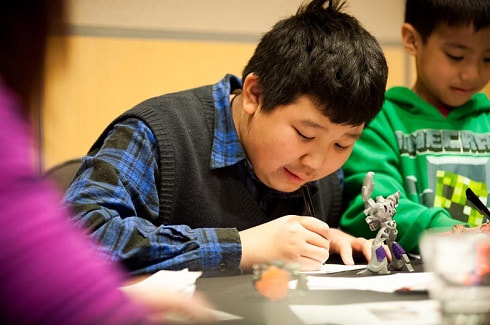
Autism assessment is a crucial process that helps in identifying and diagnosing autism spectrum disorder (ASD) in individuals. It involves a comprehensive evaluation of a person's behavior, communication skills, social interactions, and other developmental markers to determine whether they may have autism. There are several methods and tools used in autism assessment, including standardized tests, observation, interviews with parents and caregivers, and medical evaluations. The assessment process is typically carried out by a team of professionals, such as psychologists, speech therapists, and pediatricians, who have expertise in diagnosing autism. One of the key components of autism assessment is the observation of the individual's behavior in different settings and situations. This allows professionals to assess how the person interacts with others, communicates, and engages in activities. They also look for specific signs and symptoms of autism, such as repetitive behaviors, difficulties with social cues, and sensory sensitivities. Standardized tests are often used in autism assessment to measure the individual's cognitive abilities, language skills, and social functioning. These tests help professionals to gather objective data and compare the person's performance to that of their peers. In addition, interviews with parents and caregivers provide valuable insights into the individual's developmental history, family dynamics, and any concerns or challenges they may be facing. Medical evaluations are also an important part of autism assessment, as they help to rule out any underlying medical conditions that may be contributing to the individual's symptoms. This may include genetic testing, neurological exams, and other assessments to ensure that the person receives appropriate care and support. Once the autism assessment is complete, professionals will provide a detailed report with recommendations for intervention and support. This may include referrals to therapy services, educational programs, and other resources to help the individual and their family navigate the challenges of autism. It is important to note that autism assessment should always be conducted by qualified professionals who have experience and expertise in diagnosing autism spectrum disorder. Early diagnosis and intervention are key to improving outcomes for individuals with autism, so it is crucial to seek help as soon as possible if you have concerns about your child's development. In conclusion, autism is a vital process that helps in identifying and diagnosing autism spectrum disorder in individuals. By using a combination of observation, standardized tests, interviews, and medical evaluations, professionals can provide a comprehensive evaluation that informs intervention and support strategies for individuals with autism. If you have concerns about your child's development, be sure to seek help from qualified professionals who can conduct a thorough assessment and provide guidance on next steps.
 Autism assessment is a crucial process that helps in identifying and diagnosing autism spectrum disorder (ASD) in individuals. It involves a comprehensive evaluation of a person's behavior, communication skills, social interactions, and other developmental markers to determine whether they may have autism. There are several methods and tools used in autism assessment, including standardized tests, observation, interviews with parents and caregivers, and medical evaluations. The assessment process is typically carried out by a team of professionals, such as psychologists, speech therapists, and pediatricians, who have expertise in diagnosing autism. One of the key components of autism assessment is the observation of the individual's behavior in different settings and situations. This allows professionals to assess how the person interacts with others, communicates, and engages in activities. They also look for specific signs and symptoms of autism, such as repetitive behaviors, difficulties with social cues, and sensory sensitivities. Standardized tests are often used in autism assessment to measure the individual's cognitive abilities, language skills, and social functioning. These tests help professionals to gather objective data and compare the person's performance to that of their peers. In addition, interviews with parents and caregivers provide valuable insights into the individual's developmental history, family dynamics, and any concerns or challenges they may be facing. Medical evaluations are also an important part of autism assessment, as they help to rule out any underlying medical conditions that may be contributing to the individual's symptoms. This may include genetic testing, neurological exams, and other assessments to ensure that the person receives appropriate care and support. Once the autism assessment is complete, professionals will provide a detailed report with recommendations for intervention and support. This may include referrals to therapy services, educational programs, and other resources to help the individual and their family navigate the challenges of autism. It is important to note that autism assessment should always be conducted by qualified professionals who have experience and expertise in diagnosing autism spectrum disorder. Early diagnosis and intervention are key to improving outcomes for individuals with autism, so it is crucial to seek help as soon as possible if you have concerns about your child's development. In conclusion, autism is a vital process that helps in identifying and diagnosing autism spectrum disorder in individuals. By using a combination of observation, standardized tests, interviews, and medical evaluations, professionals can provide a comprehensive evaluation that informs intervention and support strategies for individuals with autism. If you have concerns about your child's development, be sure to seek help from qualified professionals who can conduct a thorough assessment and provide guidance on next steps.
Autism assessment is a crucial process that helps in identifying and diagnosing autism spectrum disorder (ASD) in individuals. It involves a comprehensive evaluation of a person's behavior, communication skills, social interactions, and other developmental markers to determine whether they may have autism. There are several methods and tools used in autism assessment, including standardized tests, observation, interviews with parents and caregivers, and medical evaluations. The assessment process is typically carried out by a team of professionals, such as psychologists, speech therapists, and pediatricians, who have expertise in diagnosing autism. One of the key components of autism assessment is the observation of the individual's behavior in different settings and situations. This allows professionals to assess how the person interacts with others, communicates, and engages in activities. They also look for specific signs and symptoms of autism, such as repetitive behaviors, difficulties with social cues, and sensory sensitivities. Standardized tests are often used in autism assessment to measure the individual's cognitive abilities, language skills, and social functioning. These tests help professionals to gather objective data and compare the person's performance to that of their peers. In addition, interviews with parents and caregivers provide valuable insights into the individual's developmental history, family dynamics, and any concerns or challenges they may be facing. Medical evaluations are also an important part of autism assessment, as they help to rule out any underlying medical conditions that may be contributing to the individual's symptoms. This may include genetic testing, neurological exams, and other assessments to ensure that the person receives appropriate care and support. Once the autism assessment is complete, professionals will provide a detailed report with recommendations for intervention and support. This may include referrals to therapy services, educational programs, and other resources to help the individual and their family navigate the challenges of autism. It is important to note that autism assessment should always be conducted by qualified professionals who have experience and expertise in diagnosing autism spectrum disorder. Early diagnosis and intervention are key to improving outcomes for individuals with autism, so it is crucial to seek help as soon as possible if you have concerns about your child's development. In conclusion, autism is a vital process that helps in identifying and diagnosing autism spectrum disorder in individuals. By using a combination of observation, standardized tests, interviews, and medical evaluations, professionals can provide a comprehensive evaluation that informs intervention and support strategies for individuals with autism. If you have concerns about your child's development, be sure to seek help from qualified professionals who can conduct a thorough assessment and provide guidance on next steps.  Повысьте свой уровень образования: Купите дипломы любого уровня для расширения своих знаний
Повысьте свой уровень образования: Купите дипломы любого уровня для расширения своих знаний
 Üsküdar su kaçağı tespiti
Üsküdar su kaçağı tespiti
 Take a Rollercoaster Ride with Our Exciting Video Tonight!
Take a Rollercoaster Ride with Our Exciting Video Tonight!
 LES 9 TYPES D’ONCTION DANS LA BIBLE (Toute autre “ONCTION” vient du diable)
LES 9 TYPES D’ONCTION DANS LA BIBLE (Toute autre “ONCTION” vient du diable)
 Купить диплом с бесплатной доставкой: Успешное будущее на расстоянии одного заказа
Купить диплом с бесплатной доставкой: Успешное будущее на расстоянии одного заказа









